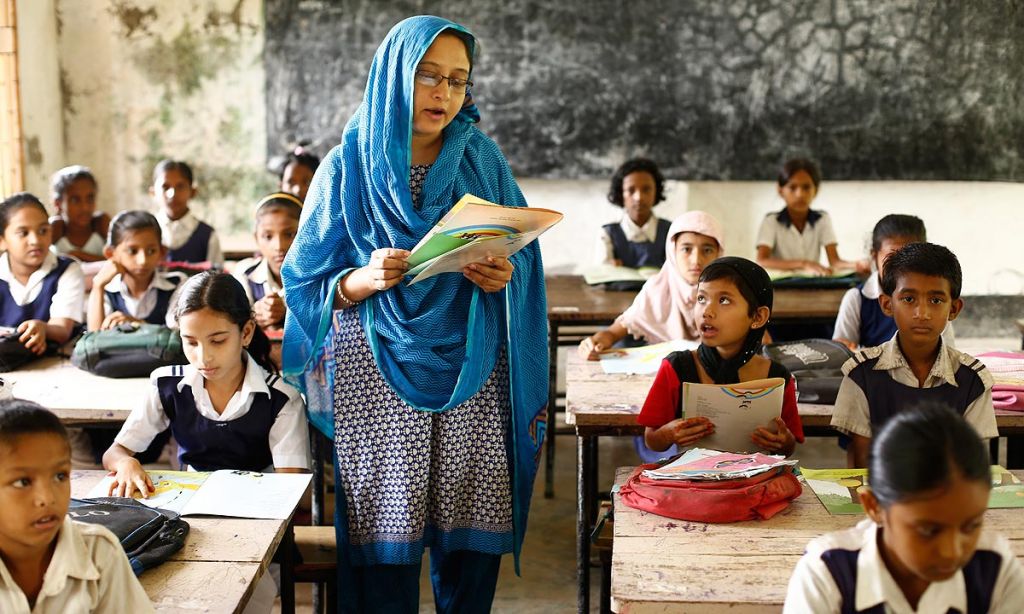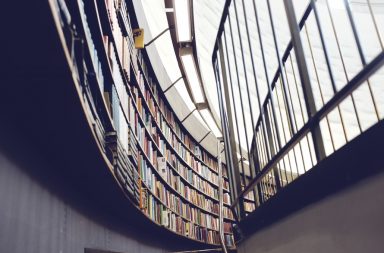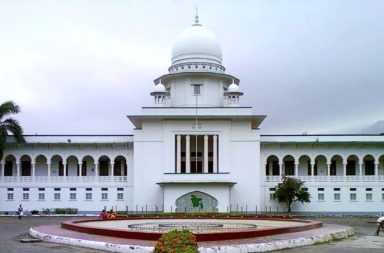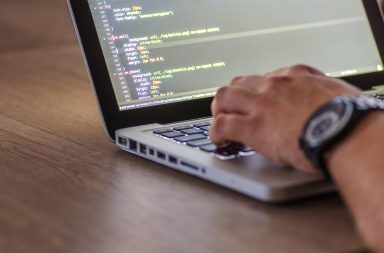By Shaikhul Islam Imran
Bangladesh has a complex and multiple system of education having composition of general, madrasah, technical and some others fields of education. Every system has their respective curriculum with nominal similarities among all systems. Recently, the ministry of education has drafted and proposed the education act, 2016, for public opinion and comments, in order to conduct and regulate the whole system of education in Bangladesh. After a certain period; the proposed act will be passed as an act of parliament. The newly proposed act has a huge prospects towards the students in terms of knowledge, morality and religious point of view but the fact is that how much the act will be implemented in accordance with the constitution of Bangladesh and public consensus as well. There must be a closer relation between the law and the curriculum of different classes. The object of this article is to assess the proposed Education Act in relation with the present curriculum of NCTB, where severe un-parallel issues can be found and after the implementation of the act, huge change need to be brought about the NCTB curriculum.

Photo by ADB
General rules and requirements in the Proposed Act
The draft Education Law 2016 proposes up to five year jail or tough fines for operating institutions without registration. It also bars schools from screening children or charging fees for admission in class. Primary education will be free and compulsory till class VIII, including two years of pre-primary for children aged 4-6. Secondary education will be from class IX-XII. It says meting out corporal or mental punishment to students will be punishable by three months in jail, or a fine of Tk 50, 000. In the prosed act, public examination at class five has been ousted and this change is positive according to some commentaries. The law also proposes that English-medium schools must include Bangla and Bangladesh Studies in their curriculums. Bangla, English, mathematics, Bangladesh studies and ICT will be compulsory at secondary and higher secondary-level education in madrasas that can bring more hardship to Madrasah students. The law also proposes establishing a permanent commission to monitor the implementation of Education Policy 2010 and other education-related issues. Night course in the public universities have been granted in the act but this recognition may bring a criticism from different sectors the society. Though there may have so many different opinions but the proper implementation of the proposal would bring pleasure to the educational arena and students as well.
Religious right in BD constitution and the proposal
Article 2A of the BD constitution says that ‘the state religion of the republic is Islam’ but the state shall not accept any ‘discrimination against, or persecution of, persons practicing any particular religion’. Article 41 (a) of the constitution states that ‘every citizen has the right to profess, practice or propagate any religion’. Freedom of religion, one of the fundamental rights guaranteed in our constitution as a right that everyone can practice any religion without interference of others and which is the fundamental duty of the state to ensure free practice of religion. The proposed act, 2016 has inserted laws relating to the non-interference with religious sentiment. In section 21(3) of the proposed act provides that ‘no activities shall be conducted in educational institutions that would invade any religious sentiment’ and if anyone violates the sub section 3 of 21, then he would be punished with taka, not exceeding, 2 lakh or imprisonment with maximum 6 months or with both.
Religion and patriotism in the proposal
The proposed education act, 2016 contemplates an education process where the ‘patriotism’, ‘social and religious consensus’ as well as ‘moral values’ should be promoted through the curriculums of the respective classes. The act also requires that the ‘standard books’ should be prepared for promoting religious education and the formulation of books be in such a way where the moral teachings form different religions be preferred, according to section 49. The act has a sound and positive attitude towards every religion for promoting morality as well as the act has promulgated some principles whereby the students will have social, religious, cultural and national consensus without communal attitude towards anyone.
NCTB curriculum and the devaluation of Islamic education
Recently, the NCTB, national curriculum and textbook board, has adopted the whole new curriculum of different stages of education. Radical change has been brought about in the contents of different classes. But the fact is that newly inserted contents of different books have deliberately divested the moral teachings, social norms and principles of Islam in most of the cases. The contents, specially the primary and secondary level, are much crippled in terms of religious education in comparison to the past curriculum. The general education system is more victim to the newly insertion than that of Madrasah, since the general system contains few religious fields but newly, it has been more shortened. This contents will deprive the students from the religious inspiration, morality and human insight in two ways, firstly by the marginalization of certain Islamic teachings and secondly, by the exclusion of different writings (stories and poems) that was formerly incorporated in the syllabus of different books.
1. Exiled contents from the curriculum
The new NCTB curriculum has divested basic Islamic teachings and principles from the syllabus of different classes. The curriculum has also excluded the glorious and noble life history of the different Islamic persons. Striving or endeavor (Jihad) is one of the basic five pillars of Islam but it has been described as ‘religious deed’ only. The signs of hypocritical or fraudulent character (Munafik) and the role of Islam for the prevention of that heinous attitude or act have been exiledform the contents of class nine ten. Islamic teachings and principles towards the patriotism, inheritance and Jihad (striving or endeavor) have been ousted from the contents of ‘Islam and moral teachings’ of class eight. The virtual and decent life history ofSalman Farsi, Abdullah Ibn Masood, the grandson of the lastprophet, Imam Hossain, the companions of the prophet Muhammad (peach be upon him), Imam Gazzali, one of the most renowned scholars of the Muslim ummah, JabirIbnHaian, the father of the chemistry, have been overthrown from the new curriculum but all of these were incorporated in the past in that book. The biography of several prophets and companions of the last prophet (peach be upon him) have been excluded from class seven. Among them, the prophet Ayub, Amir Hamza (R), Belal(R) and Khalid Bin Walid (R). The later 3 are companions of the last prophet, besides them Imam Shafi, Imam Taimiya and Khawaja Mainuddin chistee as well, great scholars of Islamic sharia, been excluded but these men are the spiritual inspiration of cores of Muslims and they are also the manifestation of Islamic golden age and heritage as well. Always dependence and rightous to almighty Allah (Taqwa), Islamic viewpoint towards the performance of promise has also been excluded from the contents of class six. Islamic requirements towards the good character has been ousted.So, by the enactment of the proposal, these basic Islamic teachings and proposal should be re-inserted as the requirement of the proposal is to promote the religious education.

2. Displaced of moral teachings from general books
Along with the religious teachings, other books play a crucial role for flourishing the consensus of the Bangladeshi nation, patriotism, human insight, strong morality, history and culture of Bangladesh among the students as well. But the changes have brought about in general book as well may have catastrophic consequences on the students in terms of shortage of knowledge. Life history of the first caliph of Islam, Abu Bakar Siddique, the poems of poet Zasimuddin, Farrukh Ahmed and Al Mahmud have been excluded from the Bangla book of class three. A poem written by Humaun Azad, namely ‘Book’ or ‘Boi’ in class five, where he inspired the students deliberately not to promote Islamic tradition and knowledge. ‘Human religion’ written by Lalon Shah impliedly condemns the veil tradition of Muslim. Mohesh, a story bears the history suppression of Muslims by the Hindu land lords.Nildarpan, a story carries the strong evidence of the repression of the people by the British have excluded which will deprive the students from the history of our previous ages. The newly included contents are very trivial and non-pragmatic for the students in comparison to that of prior and the standard of literature are also very poor as well. These contents will certainly fail to achieve the ultimate object and purpose of the education.
Provocation of Islam through different writings
Provocation of religion, though, prohibited by law here in Bangladesh. But the fact is that several topics have newly inserted in the different contents that are severely instigating and provoking as well towards the Islam. ‘Human region’ written by Lalon shah has condemned the veil tradition of Islam. ‘Candidate’ or prarthi, a poem that makes partner the sun with the supreme power of almighty Allah that is one of the fundamental prohibited sins in Islam, namely Shirk. ‘Lalshalu’ written by SayedWaliullsh is also a defamatory story to the Islamic belief and tradition. ‘Rahman’s Mother’, a story where has shown the veil as the impediment of advancement. In ‘Our Culture’, Islam has been described as ‘stranger’or ‘alien’ and in ‘let live’ or ‘Baschte Dao’, it has been inspired not to be bound with religious ‘bigotry’(?) rather life has to be ‘free and unbound’(?). How can these contents be compatible with the constitution and this act as well? Hundreds of thousands people in our country sincerely believe and practice Islam as their way of life. Religion has shaped our tradition and culture over the centuries and religion is the deeply rooted issue in our own culture. As the second largest Muslim populated country in the world, we have a well-connected relation with religion, especially with Islam.
Conclusion
To cultivate and protect our own culture, history, social, religious and moral values, a radical change has to be conducted in the present curriculum, otherwise the great purpose of education may not emanate. The proposal contains lots of prospects but the curriculum must represent it after being passed. In that sense, the present NCTB curriculum will not be compatible with the act and that is why the curriculum must have to be re-assimilated. Religion has shaped our culture through centuries and Islam being the largest religion in our country, Islam must not be overlooked from education for protecting the religious right of the mass people.
The writer is an LLB student at University of Dhaka; he writes about law, human rights and international relations.



